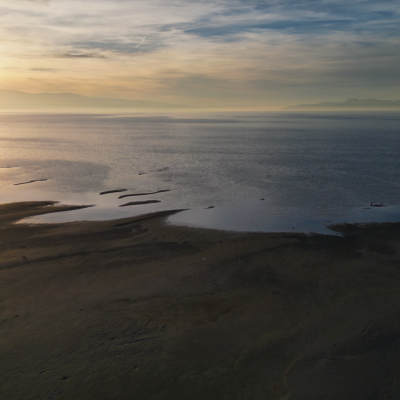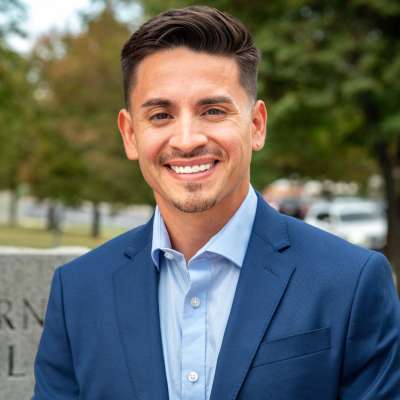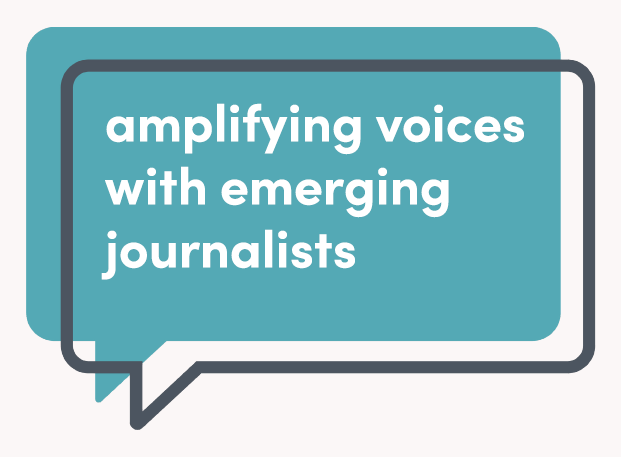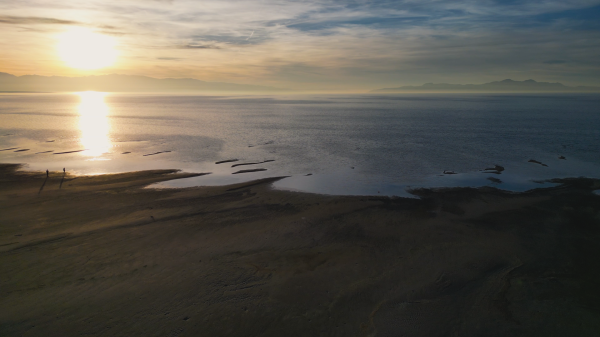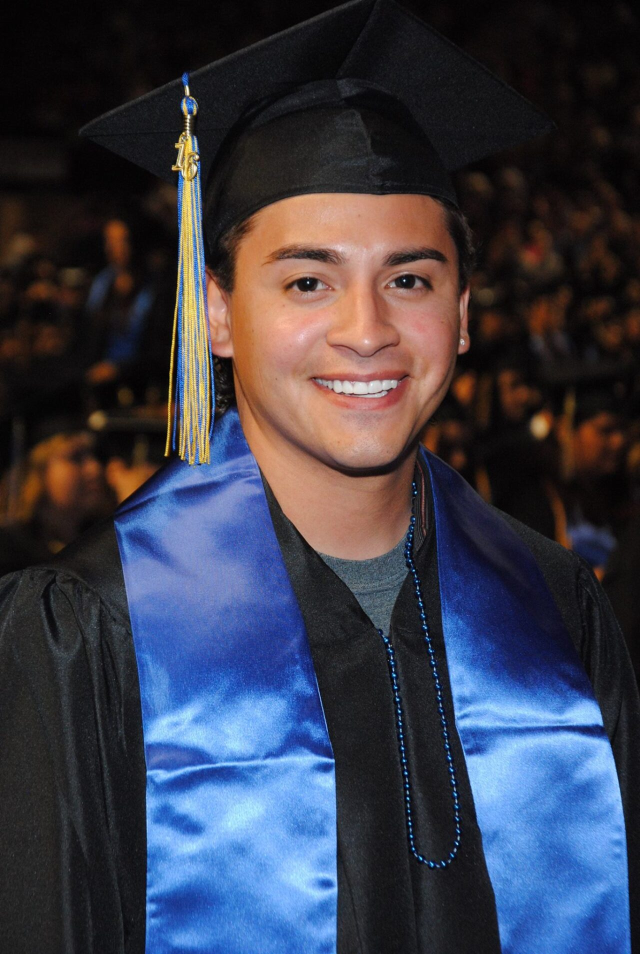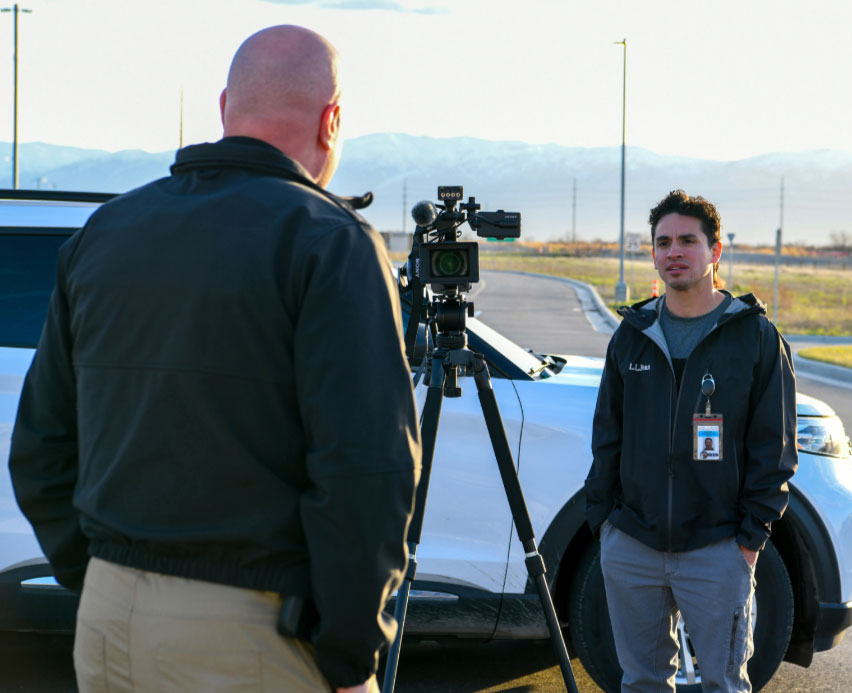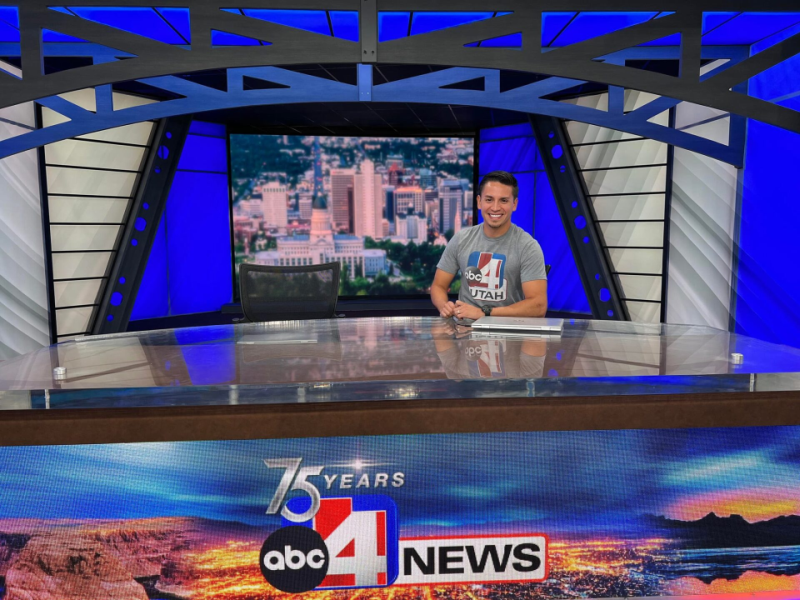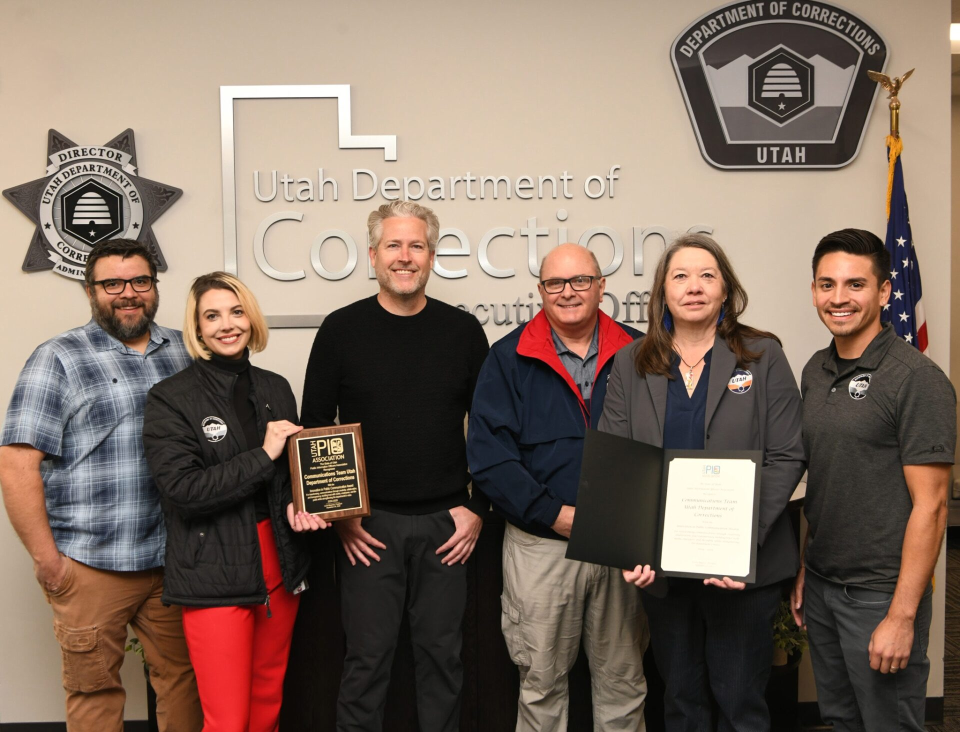A documentary focused on Indigenous stewardship of Great Salt Lake is the latest work of art centering on the declining levels of the lake and a cry, filmmakers say, for state leaders to listen to Indigenous voices who believe the issue has been “scienced to death.”
“Diverted: Indigenous Stewardship and Saving Great Salt Lake” has been two years in the making, despite reshoots and the personal struggles of balancing work, families and daily life. Now, it's ready for two screenings this month: Nov. 6 at Fisher Brewing and Nov. 20 at the Utah Film Center.
Director and producer Valene Peratrovich said she initially got involved with the project after co-producers McCaulee Blackburn and Cristian Martinez asked her to do voice-over work for the documentary, which was still in pre-production, and later invited her to attend planning meetings. At first, Peratrovich said, the amateur crew had no idea what they were doing.
“We just knew what we cared about, and that really taught us that you don't need perfect and you don't need to be an expert,” Peratrovich said. “If the intention is true, and the heart is there, everything else will grow from that.”
The documentary centers Indigenous voices and focuses on traditional connections and their ecological knowledge to save the lake, Peratrovich said. Interviews with Darren Parry, former Northwestern Shoshone Nation chairman; Carl Moore, a member of the Hopi, Chemehuevi, and Colorado River Indian Tribes; and Elizabeth Kronk Warner, dean of the University of Utah’s law school, bring the threads of the story together on screen.
“I was super passionate about it because I am Indigenous myself,” said Peratrovich, who is Tlingit (Eagle Clan), Unangan and Athabascan, from the Anchorage, Alaska area. “I was raised really to believe in my people, in my culture, understanding all the positive and negative things that have impacted us as people, and really using it to push the culture forward, advocate for my people and really amplify our voices.”
Peratrovich led the crew of two producers, Blackburn and Martinez, whom she met in 2022 while studying journalism at Salt Lake Community College. They initially worked on the documentary as a passion project outside of the classroom, but they later pitched it for a documentary class at the college and premiered a first cut of the film through the school in December 2023.
In 2024, “Diverted” received a Rocky Mountain Student Emmy and a Bloomberg Philanthropies grant from the Salt Lake City Arts Council.
Andrew Shaw, special projects coordinator for the Salt Lake City Arts Council, runs Wake the Great Salt Lake, a temporary public art project funded by Bloomberg Philanthropies to educate and inspire people about saving Utah’s capital-city namesake. Salt Lake City was one of eight cities to receive the $1 million grant from Bloomberg Philanthropies. The money was divided amongst several art projects and artists and funded murals, photo exhibitions and performance art.
Shaw said he believes the documentary has the potential to be seen and make an impact at film festivals across the country and the world.
“I think this film has such great potential … as a good depiction of a community caring about the water and the natural resources around them,” he said.
Peratrovich said their $10,000 portion of the grant was really helpful.
“We're going to be able to afford to enter into film festivals,” she said, though they’re not sure which festivals yet. “It's not free, it ain't cheap, so we're very lucky for their support.”
Shaw said he’s been impressed by the crew’s approach to the film, finding the right people to interview and showcasing how communities can find solutions together. The upcoming screenings, he added, mark the beginning of something great for added awareness about the lake and its connection to some of Utah’s Indigenous communities.
“Artists have a way of touching people's hearts in a way that the data doesn't,” he said. “Data shows us what's going wrong and helps us really get into the weeds, but art can show a much bigger picture and can be much more accessible to a wider audience.”
Still, as a grassroots project, the documentary faced several obstacles – from the technical to new laws – during shooting and post-production, Peratrovich said.
“I looked at it as each barrier or obstacle or hurdle was presented in getting this film done and completed,” she added. “It really was always a checkpoint: are you dedicated to the story?”
The first iteration of the documentary wrapped while the crew were still students at SLCC, giving them access to classrooms and other filming resources. Peratrovich said she took specific classes just to be able to use certain equipment, like drones, to keep moving the project forward.
The crew took a blow in 2024, when the Utah Legislature passed HB 249, banning governmental entities from granting personhood to bodies of water. The idea of giving a body of water or a natural resource personhood, or granting the same legal rights as a human, comes from Indigenous practices and an environmental personhood movement across the world.
In 2014, New Zealand’s Te Urewera Act gave a forested area a legal identity to protect its natural and cultural value. New Zealand’s bill acknowledges Te Urewera as an ancient, spiritual and living forest with distinct Indigenous history and importance. It hit hard for Peratrovich, she said, because other natural resources with personhood allows people to sue on behalf of that resource if it is believed its rights are being violated.
“It was a punch in the gut,” she said. “That was hard in our documentary when we saw that happen, because we were so hopeful about that idea [of granting personhood to Great Salt Lake].”
The crew persisted and updated the film following the personhood ban, making sure the new information was included in a written note at the end.
Earlier this year, the crew screened the film at a “work in progress” session through the Utah Documentary Association. One thing that shocked Peratrovich and her crew, she said, included reactions from some viewers who expressed the film didn’t appear to feature enough Indigenous voices in its mix of interviews.
“I think many people see Indigenous folks as people that are in traditional regalia [or] elders,” Peratrovich said. “As a director and an Indigenous woman, I'm very much right here right now, and I may not look the way you think a native person should look. And that's an interesting thing, too.”
The crew, Peratroovich said, realized they needed to go back and help people understand what it means to be Indigenous and to help break long-standing stereotypes. They went back through their footage of interviewees explaining their Indigenous experience, and made sure to ask other participants on film to share their definition of what it means to be Indigenous.
“In order to make this conversation and help it go along, we'll go to wherever we need to and grow and develop that part of the film,” Peratrovich said.
But, she added, it’s motivating to know people are “thirsty” to hear from Indigenous voices.
“People are excited to hear indigenous voices,” she said, “and they really helped wake us up to what we need to shine a light on … when it comes to sharing Indigenous stories, Indigenous ecological knowledge, and Indigenous issues and challenges.”
And that’s the hope, she added – that people see and hear different perspectives so the whole community can work together to find ways to save the lake. It won’t be just one entity or a single person with a solution.
“I hope this plant seeds, seeds of understanding, seeds of hope and bridges,” Peratrovich said. “Seeds to build bridges and communities so that we reach out to each other and consider each other's perspective and how we can work together.”
Vanessa Hudson, a recent journalism graduate from the University of Utah, wrote this article through a collaboration with Amplify Utah and the Great Salt Lake Collaborative.







